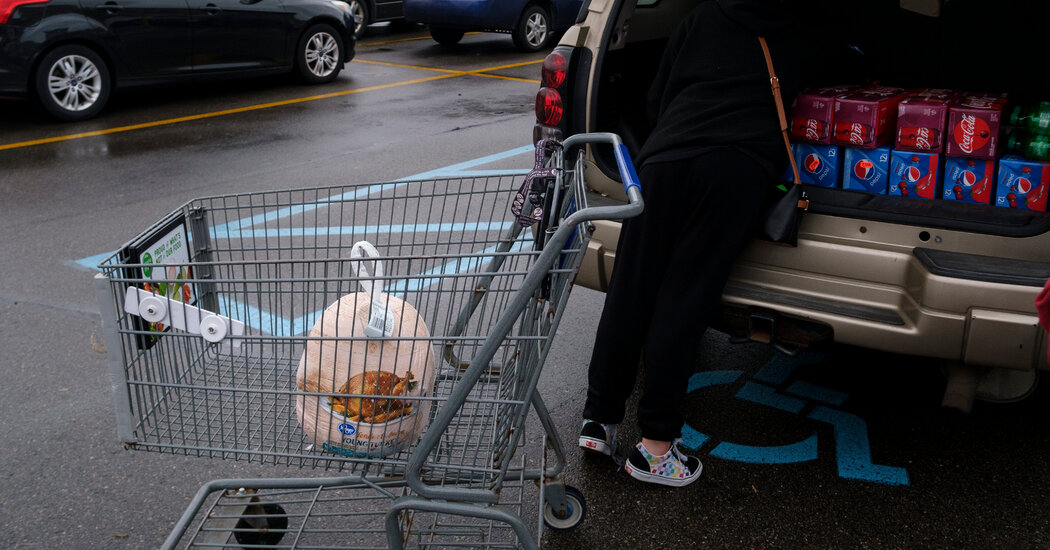
A key measure of inflation showed consumer prices rising at the fastest pace in three decades, as energy prices and demand for goods and services soared, posing a challenge to both the White House and the Federal Reserve.
Prices climbed by 5 percent in the 12 months through October, according to Personal Consumption Expenditures price index data released Wednesday. That was the fastest pace of increase since 1990.
The gauge was lifted by a 30.2 percent annual increase in the price of energy and a 4.8 percent increase in the price of food. Prices rose 0.6 percent from September to October, as supply chain disruptions continued to clamp down on the availability of certain products and components.
The increases were in line with what analysts had expected, but the rise in the Federal Reserve’s preferred inflation gauge will only add pressure on the central bank to take quicker action to maintain stable prices.
Price increases have shown few signs of fading, as some officials in the Biden administration and at the Fed argued they would earlier this year. The central bank is facing growing calls to hasten plans to end their stimulative bond-buying program and to begin to raise interest rates, a process that could risk slowing job gains and economic growth.
While inflation has soured consumer sentiment and weighed on Mr. Biden’s approval ratings, those price increases have been spurred in part by a strong economic recovery. Separate data released by the Labor Department on Wednesday found that initial jobless claims dropped to their lowest point since 1969, falling by 71,000 to 199,000 last week.
Mr. Biden hailed the drop in unemployment claims on Wednesday but conceded that the country was still far from a full recovery and that it had to address rising inflation.
“We have more work to do before our economy is back to normal, including addressing prices increases that hurt Americans’ pocketbooks and undermine gains in wages and disposable income,” Mr. Biden said in a statement on Wednesday.
In an attempt to drive down gas prices, the United States and five other world powers announced a coordinated effort on Tuesday to tap into their national oil stockpiles. Mr. Biden has ordered the Energy Department to release 50 million barrels of crude in the Strategic Petroleum Reserve, lower than what traders had expected from the emergency stockpile, which is the biggest in the world with 620 million barrels.
Consumers have grown increasingly concerned about the spike in prices. A survey from the University of Michigan released on Wednesday found that consumers expressed less optimism in November than at any other time in the past decade about prospects for their finances and the overall growth of the economy. The decline in consumer sentiment was a result of the rapid increase in inflation and the lack of federal policies that would address the damage to household budgets, according to the report.




